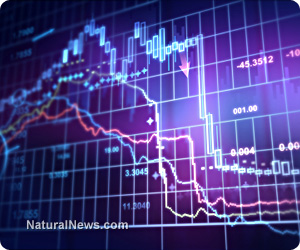Economists are warning that the incoming administration of President-elect Donald Trump could rattle the country’s economy and lead to stock markets changing course from their current bullish state.
Most stock markets have been surging thanks to traders responding positively to Trump’s recent victory in the election and his impending inauguration on Jan. 20, 2025.
The S&P 500 has set another record in the past week. The small-capitalization stock index Russell 2000 nearly doubled in value over two weeks and is approaching its first record-breaking week since 2021. The CBOE Volatility Index, which measures investor fears regarding the future of the United States economy, is at levels that indicate calm among traders. (Related: Stephen Miller, the incoming White House deputy chief of staff, promises «a new golden era» under Trump.)
The Big Tech-focused Nasdaq Composite and the Dow Jones Industrial Average also reported climbing higher and higher.
Meanwhile, foreign stock exchanges in Frankfurt, London, Paris, Shanghai, Sydney and Tokyo all closed lower last week, with many major currencies like the Canadian dollar, the Mexican peso, the euro and the Chinese yuan or renminbi falling as the U.S. dollar gains value.
Traders worried about stock market’s extreme bullishness
The great degree of optimism among traders on Wall Street has led to some raising concerns that this long-running bullish attitude could lead to a massive bubble popping in the near future.
«One of my top concerns is extreme bullishness, and we are seeing signs of that,» said Eric Diton, president and managing director of the financial services company Wealth Alliance. «We know from history that when investors are too bullish, and everyone is in the market, the question is who is buying to drive it higher?»
Adam Slater of the advisory firm Oxford Economics warned that the current trend of higher yields could be due to «a considerable rise in uncertainty about growth and inflation outcomes connected to areas like U.S. trade and fiscal policy.
He warned that as soon as Trump enters office, his protectionist economic policies could hurt export-heavy economies like Germany and China. While this could strengthen the dollar, it could slow down the growth of U.S.-connected economies and harm American companies with massive exposure overseas.
«The picture looks more uniformly deflationary than in 2016,» said Slater. «The optimism of stock markets could prove premature.»
While many economists are concerned about Trump’s economic policies and his tariffs, there is broad consensus that his other plans, such as deregulation, lower corporate taxes and the softening of antitrust policies, will more than offset any potential harms caused by his tariffs and protectionism.
Trump’s nomination of hedge fund manager Scott Bessent to be the next head of the Department of the Treasury was also received enthusiastically by Wall Street. Many investors are also remembering how well they did when they put their money on equities during Trump’s first term, and they believe their great run from 2016 to 2020 can happen again.
Watch this clip from Fox Business discussing how certain stocks have been rapidly surging in value since Trump’s victory in the election.
This video is from the NewsClips channel on Brighteon.com.
More related stories:
Trump announces tariffs on Mexico, Canada and China over their roles in border and drug crises.
Trump to replace Janet Yellen with hedge fund mogul Scott Bessent as Treasury Secretary.
REPORT: Tariffs during Trump’s first term would help U.S. decouple from China.
Sources include:
